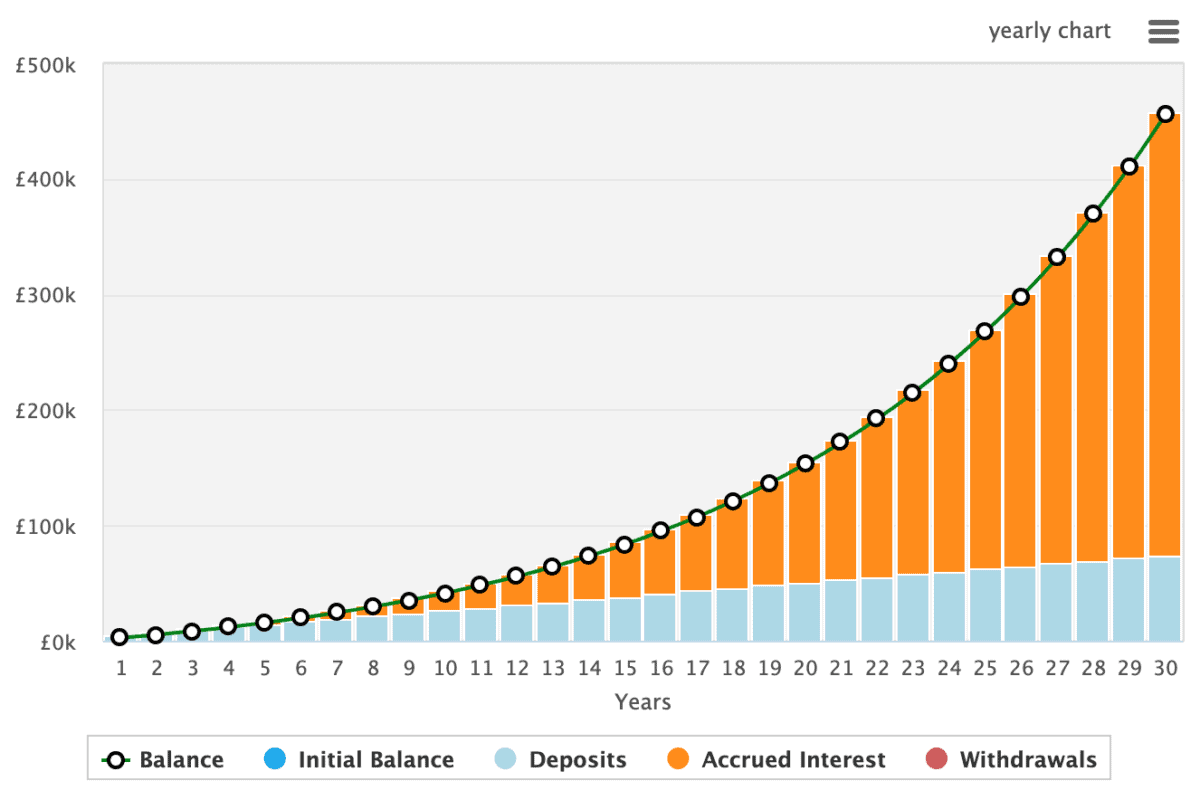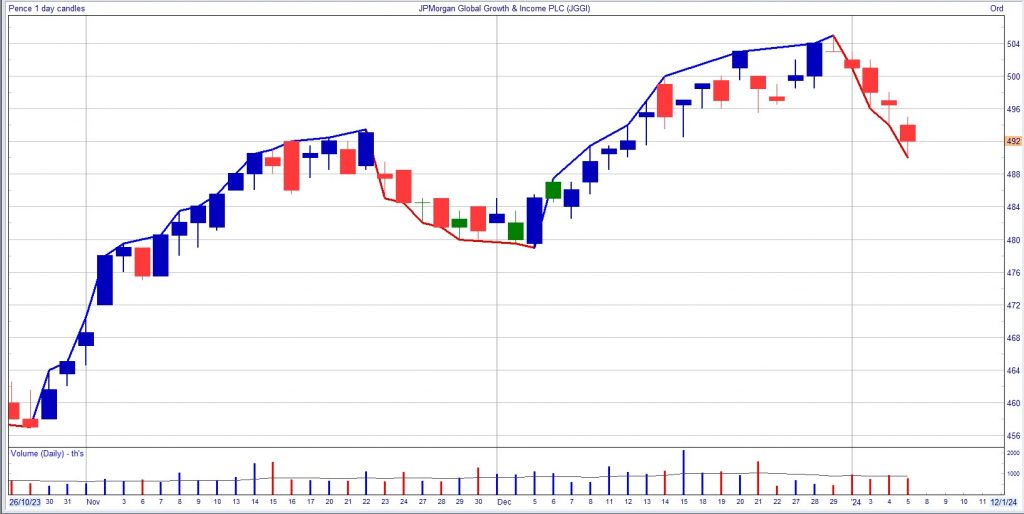Part two of a round-up of the year’s most memorable quotes from investment company chairmen/chairwomen and investment managers
ByFrank Buhagiar•05 Jan, 2024•
A second serving of something different…
As regular readers will know, as well as covering the week’s investment company results and broker comments, Doceo’s Weekly 360 includes quotes from the various chairmen, chairwomen and investment managers. These quotes are included because they are either helpful, insightful, memorable or a mix of all three. With investment company news in short supply over the festive period, we’ve been trawling through the various Weekly 360s we’ve published over the course of 2023 and picking out one quote for each week of the year. Last week’s Weekly 360 covered the first half of 2023. This week, it’s the turn of the second half.
Once again, a big thank you to the chairmen/chairwomen/investment managers for taking the time to write statements and reports that are not only highly informative but also very readable. We look forward to reading their thoughts and musings in 2024!
07 July 2023
“The Company overall had a worthwhile year…” Worsley Investors (WINV) Chairman W. Scott.
14 July 2023
“Last summer, new legislation providing the greatest support for environmental solutions in the history of the United States passed into law. Yet you would hardly have known it from the name. The Inflation Reduction Act of 2022 (IRA)…was originally billed as the ‘Build Back Better Act’, but neither name reflects the true intentions behind the law – combatting climate change and reinvigorating US industrial and strategic policy in the process.” Jupiter Green (JGC) Chairman Statement.
21 July 2023
“Few things irk the portfolio manager more than continued recourse to superlatives when describing the macro backdrop influencing the behaviour of the wider equity market. We can say with some asperity that we are beyond bored with living in ‘interesting times’. Nonetheless, we are compelled to record the reality of another epoch that seems without precedent.” Bellevue Healthcare (BBH) Investment Manager’s Report.
28 July 2023
“Investing at this time in the cycle is always challenging and is often compared to picking up pennies in front of a steam roller.” Henderson Diversified Income (HDIV) Fund Manager’s Report.
04 August 2023
“There are plenty of reasons to be bearish. More than a year ago, the two-year treasury yields rose above the ten-year treasury yields in the US bond market (it is normally the other way around). This ‘yield curve inversion’ has, historically, been a lead indicator of recession about 80% of the time, but the lag between the date of inversion and recession can be six months to three years. It is a bit like seeing a big dark cloud on the horizon and predicting it will rain soon!” Fidelity European (FEV) Portfolio Managers.
11 August 2023
“In nature, there exists a mushroom: the matsutake. Matsutake are wild mushrooms that emerge in some of the most disturbed environments in the world. However, matsutake is not considered a pest; it is a gourmet treat: the most valuable mushroom in the world. Nature shows us that valuable products can emerge even within the most disturbed environments. The same applies to companies; difficult times help us identify resilience and adaptability, two core tenets of long-run success.” Baillie Gifford US Growth (USA) Investment Manager’s Review.
18 August 2023
“There is the noise accompanying the results from public companies, with analysts and investors poring over the numbers and CEO statements looking for an interpretative edge. Cutting through that noise, I sometimes think it is easiest to simply look at the dividend announcement by the company. To us the increase, maintain or cut decision taken by a board of directors about its current dividend captures an enormous amount of information about mid-term prospects.” Finsbury Growth & Income (FGT) Monthly Report for July 2023.
25 August 2023
“Market timing is challenging, particularly in the small cap area, and often it is ‘time in’ rather than ‘timing’ which is critical.” abrdn UK Smaller Companies Growth (AUSC) investment managers.
01 September 2023
“This is the easiest section of any report I have ever written. The outlook is the brightest since NAVF’s IPO in 2020. METI’s M&A review, the Tokyo Stock Exchange’s announced intention to name and shame all companies trading below PBR and requiring them to generate comprehensive plans to plot a path to trading at multiples, and the Corporate Governance programme generally, have never provided a stronger regulatory wind at our back.” Nippon Active Value Fund (NAVF) Investment Adviser Paul ffolkes Davis.
08 September 2023
“If, as Mr Buffet famously said, ‘price is what you pay, value is what you get’, then it is possible to pay too much even for the highest quality companies. Assessing the sustainability of corporate returns and the correct price to pay for future returns is the skill and partially the art of investment.” Mid Wynd International (MWY) Chairman Russell Napier.
15 September 2023
“…our tolerance for companies with intransigent and entrenched management who refuse to listen to shareholder voices has diminished…There are too many well run and undervalued companies in Japan, with management teams who want to create value for shareholders, to waste our time with uncooperative companies with no interest in shareholders.” AVI Japan Opportunity Trust (AJOT) Portfolio Manager Joe Bauernfreund.
22 September 2023
“Unlike more predictable professions, where following certain procedures guarantees certain outcomes, investing demands similarly precise methods but success is never guaranteed. We would all prefer it to be straightforward.” Brown Advisory US Smaller Companies (BASC) Portfolio Managers’ Review.
29 September 2023
“It can be very tempting, when share prices fall or performance is challenging, to go for the quick fix, to chase performance and do things that you would not do in other circumstances. As shareholders in this Company, you should neither expect that from your Portfolio Managers, nor excuse it.” JPMorgan Emerging Markets (JMG) portfolio managers.
06 October 2023
“Feeling uncomfortable is necessary if seeking to perform differently from the crowd.” Ruffer (RICA) Investment Manager’s Report.
13 October 2023 “Here I go again, wishing that the following year is better than the current one.” Ashoka India Equity (AIE) Chairman Andrew Watkins.
20 October 2023
“Experience demonstrates that some of the best investments are undertaken at the bottom of the economic cycle.” Seraphim Space (SSIT) Chair Will Whitehorn.
27 October 2023
“…what is the catalyst to end this period of UK Small and Mid-cap underperformance?…Sadly the answer is unsatisfactory. I don’t know. There it is, I simply don’t know. So often the catalyst is something we only see in a rear-view mirror, a moment that is only identified from post event analysis, a trough on a Bloomberg chart we look back on and say ‘that was the bottom, and what an opportunity it was’. BlackRock Smaller Companies’ (BRSC) Investment Manager’s Report.
03 November 2023
“It is always difficult for us to assess when businesses will become better appreciated which is why we try to focus more on the underlying progress of sales and profits in the expectation that, over the long term, these will be reflected in share prices. Like you, we would like to have seen significantly better share price results over the past couple of years but, in general, we see solid ongoing progress at individual businesses and take significant comfort from that.” Baillie Gifford Japan Trust (BGFD) full-year investment manager’s review.
10 November 2023
“The noise around market moves seems to increase with every passing year.” BlackRock Greater Europe (BRGE) Investment Manager’s Report.
17 November 2023
“There was a huge spike in the number of articles containing the phrase ‘soft landing’ in both 1999/2000 and 2007/08. We worry that history will repeat itself.” Capital Gearing Trust (CGT) Investment Managers.
24 November 2023 “’Illegitimi non carborundum’ is our mentality currently…” Rockwood Strategic (RKW) fund manager Richard Staveley. Need help translating? ‘Don’t let the b* grind you down…’
01 December 2023
“I feel like a well-worn record in continuing to point out the value in this space but that isn’t normally the time to stop doing it.” Odyssean (OIT) Chair Jane Tufnell.
08 December 2023
“Chairmen, and other commentators, are apt to open by remarking on ‘uncertain times’. No-one would dispute that we are in such times now. In reality, however, we always are, and what varies is the depth of uncertainty.” Lowland (LWI) Chairman Robert Robertson.
15 December 2023
“Geopolitical risk has increased since we wrote our mid-year outlook, but this fact does not seem to have put much of a dent in the market’s confidence in the ‘Magnificent Seven’, which have streaked ahead on a cloud of AI (recall that by the end of the film, only three of the seven were still alive).” Schroder UK Mid Cap (SCP) Investment Manager’s Report.
22 December 2023 “We have heard the death knell sounded for investment trusts many times before. The sector has always evolved and progressed.” MIGO Opportunities Trust (MIGO) Investment Manager’s Report.







